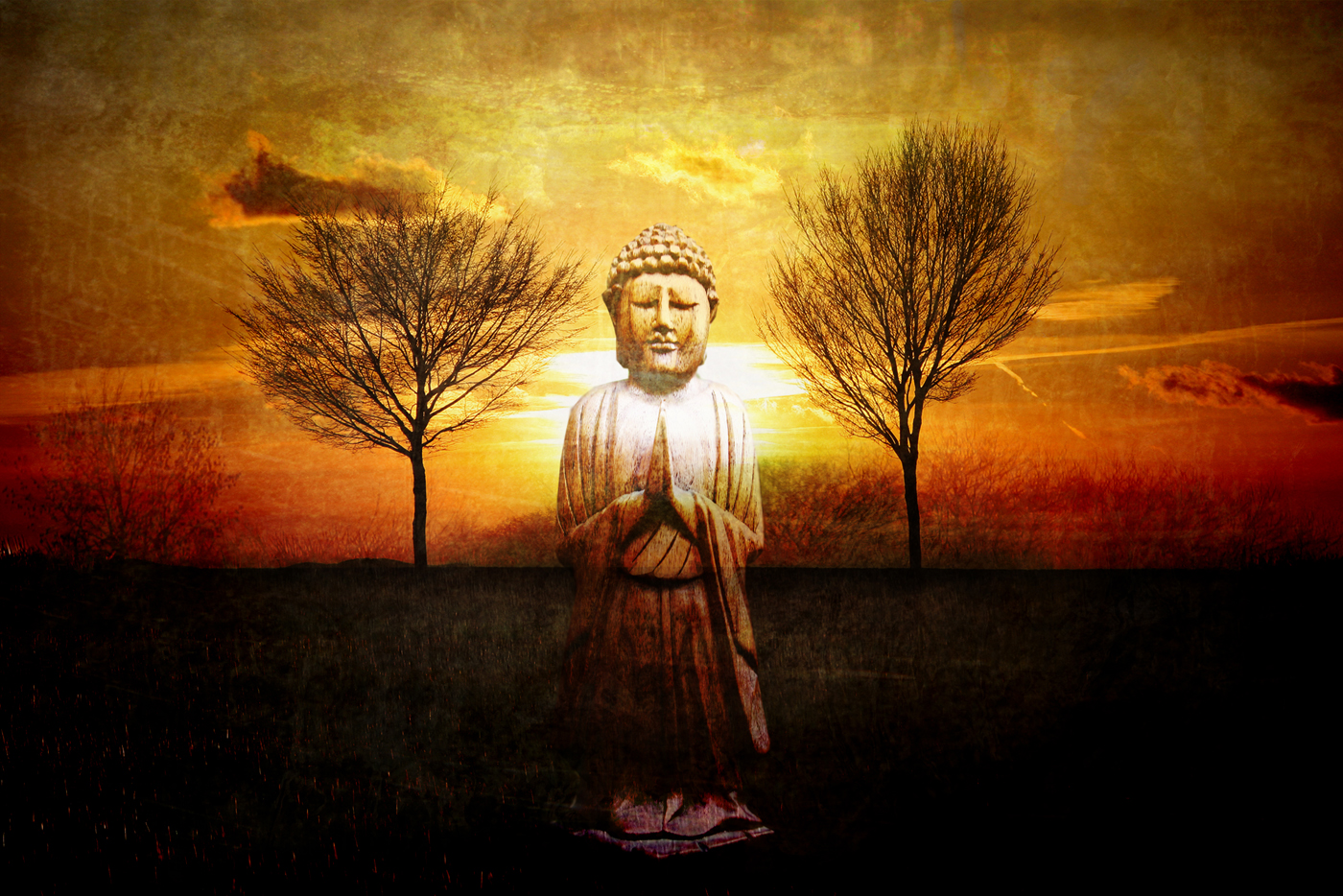
I really want to be a good yogi, and I am trying very hard to purify myself, but it’s so hard. What’s wrong?
Purification is an act of letting go. In one of the Gospels it says that men need not disfigure their faces in order to know God. There is a type of righteousness and seriousness that creeps in the minute we decide we’re going to do spiritual practices. Suddenly it’s serious work, and we have to be a certain kind of way – sort of tightassed. We may find that, though it looks good from the outside, it begins to feel kind of lousy from the inside. And there is a way in which denying too much stops the flow of spiritual energy. There are a lot of people who are really good meditators, who sit perfectly and their minds get very quiet. But they aren’t liberated – because they have pushed away form, they’ve pushed away the earth, they’ve pushed away the heart, they’ve pushed away flow.
A game of concententration
If I understand this game at all, it’s a game of exquisite balancing. And the balancing can be understood within different systems. For example, in southern Buddhist meditation, theravada Buddhist meditation, three components are emphasized. One is called sila, one is called samadhi, and one is called panna. Sila is the purification: nonkilling, nonstealing, nonlying, right speech, right livelihood, and so on. Samadhi is concentration and mindfulness. And panna is right understanding and right thought, or the wisdom connected with it.
Now, if we watch the way the game works with those three components – purification, concentration, and wisdom – we’ll see that we wouldn’t even start this dance without a little bit of wisdom. We have to understand a little bit of what the game is about even to want to sit and meditate. So we have a little bit of panna, and then we try to do samadhi, concentration. But every time we try to concentrate, all of our other desires, all of our other connections and clingings to the world keep pulling on us all the time. So we have to clean up our game a little bit; that’s called sila, purification. We clean up our game a little bit, and then our meditation gets a little deeper. As our meditation gets a little deeper, we are quieter and we are able to see more of the universe so that wisdom gets deeper and we understand more. The deeper panna makes it easier to let go of some of the attachments, so it makes it easier to increase the sila. And the increased sila allows the samadhi to get deeper. So we begin to see the way these three things all keep interweaving with one another. They’re a beautiful balancing act.
On the other hand, people who have heart, lots of love but no control, no discipline, no one-pointedness tend to get very mushy. They’re like soft earth – there’s nothing firm in them, and that lack of firmness keeps allowing them to go only so far, and they keep falling down again. There’s no backbone in the process.
Enlightenment in the present moment
The way to approach the whole sadhana is with firmness and with lightness. Not hysterical ha, ha, ha but with a lightness, a delight, enjoying the light of it all, making it light. Somewhere I remember a line that goes, ‘the angels can fly ’cause they take themselves lightly.‘ People tend to get very lost in their own melodramas, romanticizing their own spiritual journey. ‘I’m getting enlightened.‘ And they tend to take themselves very seriously. They’ve got themselves a storyline. And they begin to look like yogis, and they begin to smell like yogis, and they come on as they imagine yogis should; they have a whole image of themselves becoming yogis. That’s all going to have to go. We come back into the present moment. We are what we are. We let go of the romantic storyline of our own predicament, because that one’s just keeping us from being wherever we really are at the moment.
Righteousness
I’d just like to point out that righteousness, being very ‘good’, does not necessarily bring us to truth. Once we are wedded to and immersed in truth, in the sense of formlessness, then we will be righteous. It’s like the ten Commandments. We can do them out of a ‘goody-goody’ place, with anger in our hearts, and righteousness and fear of punishment; or we can come into the space of our own being in relation to God, where we look and see why things are the way they are; and it just flows out of us and we just can’t act in ways that create more karma or lay trips on other human beings. Then we begin to understand the ten Commandments from a different angle – righteousness coming out of truth, rather than truth coming out of righteousness.
From Grist For The Mill by Ram Dass © 2014, published in the UK by Harpercollins.
 $3
$3
GRIST FOR THE MILL
by Ram Dass
This book conveys the beautiful teaching of how to absorb the joys, frustrations, distresses and delights of your life into your chosen spiritual practice so that everything becomes ‘more grist for the mill’ – the mill whose produce, day by day, is nourishing your unfolding spirit.
[button color=”purple” href=”http://www.cygnus-books.co.uk/grist-for-the-mill-ram-dass.html” tag=”button” target=”_blank”]Click here to buy[/button]




